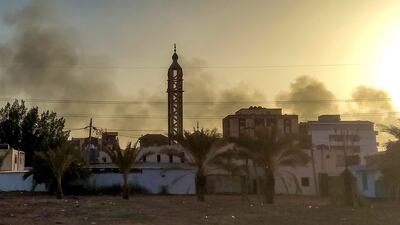Sudan's Civil Aviation Authority has extended the closure of the country's airspace until July 10 to all traffic except humanitarian aid flights.
Sudanese airspace was closed to regular traffic after a military conflict erupted between the country's army and the paramilitary Rapid Support Forces in mid-April.
A number of ceasefires have failed in Khartoum, while outlying cities and regions have been torn by ethnic violence.
According to a recent US assessment, some fighters from the RSF have been seen with shoulder-mounted anti-aircraft missiles.
Those weapons, while useful against aircraft from the rival Sudanese air force, cannot reach altitudes where they would pose a threat to commercial airliners – unless the planes were landing or taking off, when they would clearly be identifiable as civilian aircraft.
Commercial airliners could, however, be vulnerable at altitudes of around 12,000 metres, to systems such as the 9K33 Osa, which with the right missiles can hit airliners at cruising altitude.
These weapons, as well as the Chinese HQ-6D ground-to-air missile system, are operational in Sudan and could pose a danger to airliners, according to recent analysis by the Osprey defence consultancy.
An Eid Al Adha truce was brought to an abrupt end on Thursday as a powerful explosion near Sudan's army headquarters was felt across the capital Khartoum.
Residents said fighting between rival forces resumed on the second day of Eid Al Adha, as columns of smoke rose from the explosion site.
Ceasefires announced separately by the warring generals for the holiday were supposed to halt fighting, but sporadic clashes were reported.
Deadly fighting since mid-April between forces loyal to army chief Gen Abdel Fattah Al Burhan and the paramilitary Rapid Support Forces has left millions of Khartoum residents trapped, rationing electricity and water in the oppressive heat.
The war between Gen Al Burhan and his former deputy, RSF commander Mohamed Dagalo, has killed at least 2,800 people, according to the Armed Conflict Location and Event Data Project.
The tally is a conservative estimate, with many of the wounded unable to reach health centres and bodies left to rot in the streets in both Khartoum and the western region of Darfur, where most of the violence has occurred.
More than two million have been displaced within and beyond Sudan's borders.
The fighting, which erupted on April 15, has shown no signs of abating as experts say both sides refuse to negotiate before claiming military advantage.











